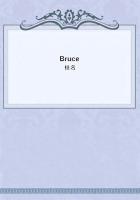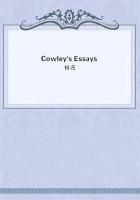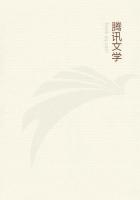(August 1824)
"To the famous orators repair, Those ancient, whose resistless eloquence Wielded at will that fierce democratie, Shook the arsenal, and fulmined over Greece To Macedon and Artaxerxes' throne."--Milton.
The celebrity of the great classical writers is confined within no limits, except those which separate civilised from savage man. Their works are the common property of every polished nation. They have furnished subjects for the painter, and models for the poet. In the minds of the educated classes throughout Europe, their names are indissolubly associated with the endearing recollections of childhood,--the old school- room,--the dog-eared grammar,--the first prize,--the tears so often shed and so quickly dried. So great is the veneration with which they are regarded, that even the editors and commentators who perform the lowest menial offices to their memory, are considered, like the equerries and chamberlains of sovereign princes, as entitled to a high rank in the table of literary precedence. It is, therefore, somewhat singular that their productions should so rarely have been examined on just and philosophical principles of criticism.
The ancient writers themselves afford us but little assistance. When they particularise, they are commonly trivial: when they would generalise, they become indistinct. An exception must, indeed, be made in favour of Aristotle. Both in analysis and in combination, that great man was without a rival. No philosopher has ever possessed, in an equal degree, the talent either of separating established systems into their primary elements, or of connecting detached phenomena in harmonious systems. He was the great fashioner of the intellectual chaos; he changed its darkness into light, and its discord into order. He brought to literary researches the same vigour and amplitude of mind to which both physical and metaphysical science are so greatly indebted. His fundamental principles of criticism are excellent. To cite only a single instance:--the doctrine which he established, that poetry is an imitative art, when justlyunderstood, is to the critic what the compass is to the navigator. With it he may venture upon the most extensive excursions. Without it he must creep cautiously along the coast, or lose himself in a trackless expanse, and trust, at best, to the guidance of an occasional star. It is a discovery which changes a caprice into a science.
The general propositions of Aristotle are valuable. But the merit of the superstructure bears no proportion to that of the foundation. This is partly to be ascribed to the character of the philosopher, who, though qualified to do all that could be done by the resolving and combining powers of the understanding, seems not to have possessed much of sensibility or imagination. Partly, also, it may be attributed to the deficiency of materials. The great works of genius which then existed were not either sufficiently numerous or sufficiently varied to enable any man to form a perfect code of literature. To require that a critic should conceive classes of composition which had never existed, and then investigate their principles, would be as unreasonable as the demand of Nebuchadnezzar, who expected his magicians first to tell him his dream and then to interpret it.
With all his deficiencies, Aristotle was the most enlightened and profound critic of antiquity. Dionysius was far from possessing the same exquisite subtilty, or the same vast comprehension. But he had access to a much greater number of specimens; and he had devoted himself, as it appears, more exclusively to the study of elegant literature. His peculiar judgments are of more value than his general principles. He is only the historian of literature. Aristotle is its philosopher.
Quintilian applied to general literature the same principles by which he had been accustomed to judge of the declamations of his pupils. He looks for nothing but rhetoric, and rhetoric not of the highest order. He speaks coldly of the incomparable works of Aeschylus. He admires, beyond expression, those inexhaustible mines of common-places, the plays of Euripides. He bestows a few vague words on the poetical character of Homer. He then proceeds to consider him merely as an orator. An orator Homer doubtless was, and a great orator. But surely nothing is more remarkable, in his admirable works, than the art withwhich his oratorical powers are made subservient to the purposes of poetry. Nor can I think Quintilian a great critic in his own province. Just as are many of his remarks, beautiful as are many of his illustrations, we can perpetually detect in his thoughts that flavour which the soil of despotism generally communicates to all the fruits of genius. Eloquence was, in his time, little more than a condiment which served to stimulate in a despot the jaded appetite for panegyric, an amusement for the travelled nobles and the blue- stocking matrons of Rome. It is, therefore, with him, rather a sport than a war; it is a contest of foils, not of swords. He appears to think more of the grace of the attitude than of the direction and vigour of the thrust. It must be acknowledged, in justice to Quintilian, that this is an error to which Cicero has too often given the sanction, both of his precept and of his example.















